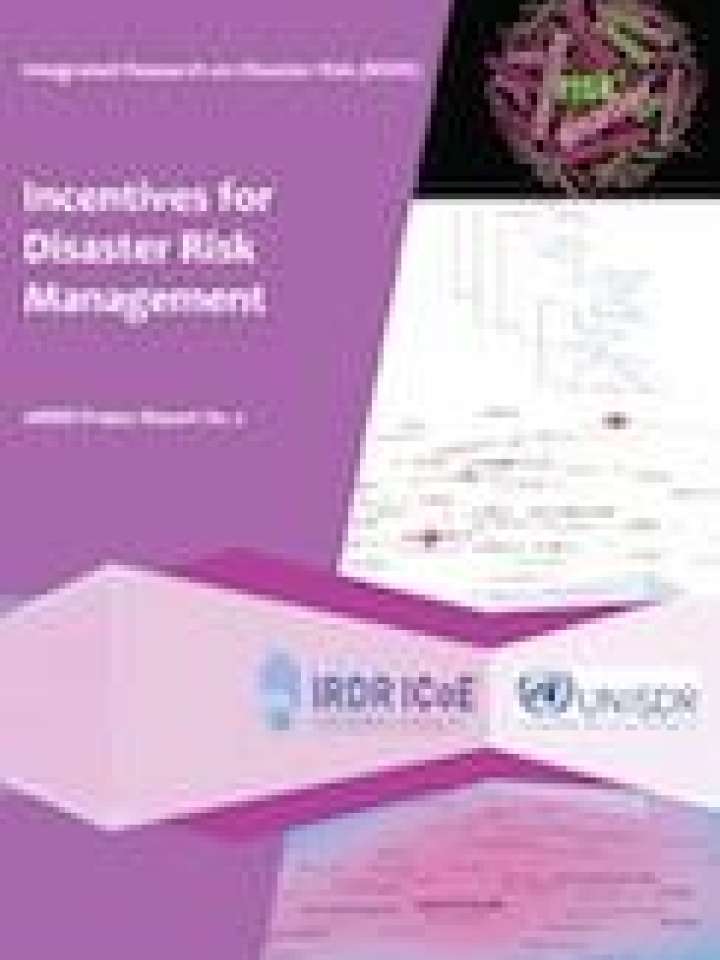Incentives for disaster risk management
Assessment of Integrated Research on Disaster Risk (AIRDR) Publication No. 2
This report summarizes the currently available scientific knowledge on incentives for disaster risk management. It explains how disaster risk knowledge has evolved over the past decades, what we know about incentives, their influence on disaster risk reduction, and what the knowledge gaps are in the current research on disaster risk management. This report builds on the efforts by the IRDR working group on the Assessment of Integrated Research on Disaster Risk (AIRDR) to provide the science-based evidence for the development of the post-2015 Hyogo Framework for Disaster Risk Reduction (IRDR 2013).
Three key policy questions are addressed in this review: i) are disaster risk mitigation and prevention still seen primarily as a cost and not an investment; ii) are the corrective, prospective, and compensatory aspects of disaster risk management not well understood and as a result emphasis is still placed on high-cost, corrective and compensatory schemes and approaches as opposed to proactive, lower cost actions thus the cost-benefit calculation more difficult to bear; iii) can incentives be identified that may constitute tipping points for behavioral change towards prospective disaster risk management and risk-sensitive choices at a significant scale thereby increasing the political, social and economic saliency of disaster risk management.
This report was commissioned by UNISDR to inform the 2015 Global Assessment Report on Disaster Risk Reduction section on the Future of Disaster Risk Management. It builds on work conducted for the Integrated Research on Disaster Risk (IRDR) Assessment of Integrated Research on Disaster Risk (IRDR AIRDR Publication No. 1).